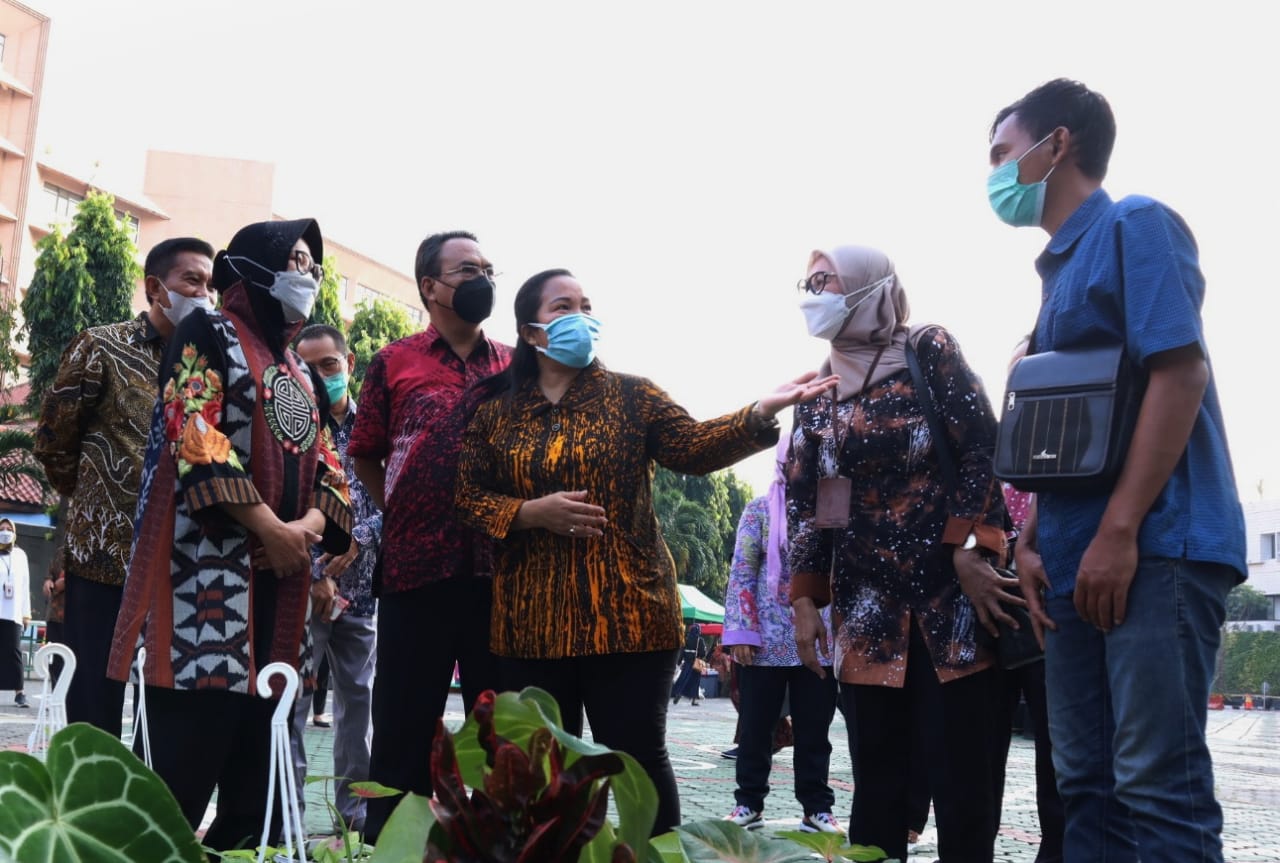JAKARTA (7 May 2021) - Tri Amiyoko (23 years old) was busy
writing a list of the names of flowers and their prices on a purchase note at
the exhibition booth at "Kartini" Center at the Ramadan Bazaar in the yard of the
Ministry of Social Affairs office, when suddenly Social Minister Tri
Rismaharini greeted him.
The former Mayor of
Surabaya is looking for a figure who grows various types of ornamental plants
and flowers at the "Kartini" Center exhibition booth. "You have to be
enthusiastic, you can recover. Your mind can't be empty, seeing the ornamental
plants that you care for can turn into money," said Risma encouraging
Amiyoko.
Tri Amiyoko,
familiarly called Yoko, six months ago was still unable to distinguish reality.
He often experiences hallucinations, often hears whispers or voices that seem
to mock him. Amiyoko has worked as a catering service employee in Temanggung.
He was a gardener when he worked in Malaysia.
Yoko's condition is
often experienced by people with mental disorders. He finally underwent social
rehabilitation at "Margolaras" Pati Center, Central Java. His condition has
stabilized again after four months of rehabilitation. Symptoms and signs of
mental disorders do not appear anymore. "I've been working at "Kartini"
Center for two weeks looking after ornamental gardens. I am happy to have a
busy life," said Yoko.
The head of the
"Kartini" Center, Juena Sitepu, took the initiative to give Yoko a job. Yoko manages
the "Kartini" Temanggung Center for ATENSI Creation Center (SKA) plant. Juena
explained that SKA which is managed at "Kartini" Center is an inclusive place for
entrepreneurship for marginalized people and people with disabilities.
"Yoko has been
assigned to work to manage ornamental plants, and it attracts visitors at this
bazaar," explained Juena. Juena said that her party sent flowers from
Amiyoko plants twice because of the flood of orders at the bazaar. "There
are about two hundreds of flowers sold," added Juena.
A psychiatric
consultant at "Kartini" Temanggung Center, Exnatius Anang Widiyanta, explained
that stigma is a major barrier in the healing process for persons with mental
disabilities.
"They range from
being healthy to sick, in the acute phase, to the stable phase, which means
that they are not continuously in a psychologically damaged state if they get
medical and social rehabilitation help," said Exnatius.
 Bahasa
Bahasa
 English
English


